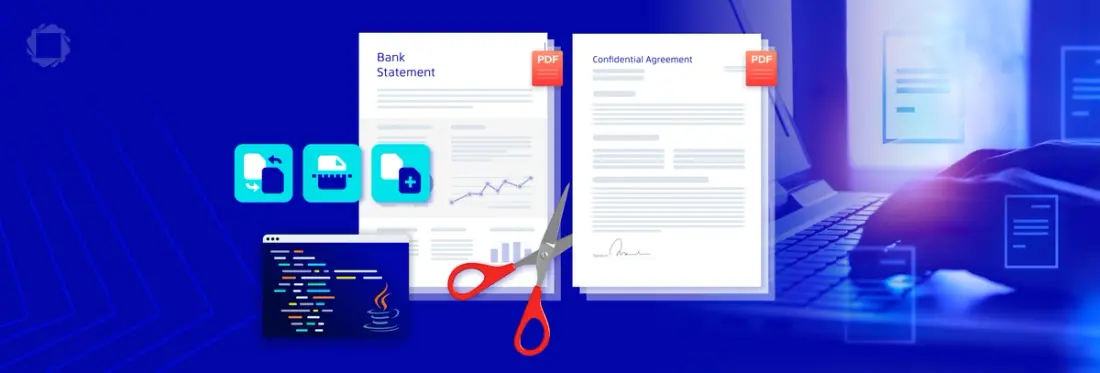Garry Klooesterman
Senior Technical Content Creator
Updated February 26, 2026
4 min
How to Merge, Split, and Reorder PDFs Using Java
Garry Klooesterman
Senior Technical Content Creator

Summary: PDFs are popular for many reasons, including being an easy way to share information. However, they pose certain challenges of their own, especially when dealing with large PDFs with many pages. For example, tasks such as manually extracting select pages or merging multiple PDFs into one file are inefficient. To handle these, and many other tasks, a PDF SDK such as the Apryse SDK can help streamline and automate the process.
Introduction
Using PDFs for storing and sharing information digitally is a pretty common practice. Among other things, PDFs make sharing information easy and they display that information reliably regardless of the hardware or software used to open them.
As great as PDFs are, they come with certain challenges such as when dealing with large PDFs containing hundreds of pages when you really only need a small section or select pages, or maybe you need to merge multiple PDFs into one file. To handle these challenges, you could use a PDF editor, such as xodo.com, Xodo PDF Studio, or an app based one like Apryse WebViewer. However, a portion of the process would still be manual.
For a more automated approach, we can use the Apryse SDK to manipulate PDFs in a few ways such as splitting a PDF into multiple pages and merging multiple PDFs into one. We’ll use Java for these examples, but the SDK is also available for other languages and frameworks including C++, .NET, Python and Node.js.
How to Get Started
Getting started is fairly easy.
- Download the Apryse Server SDK. In this case, we’ll want to choose the Java PDF library.
- Extract the folder from the .zip file.
- Get a free trial key.
- See our documentation for the full code you’ll need to handle the following example tasks. I’ve included a sample of the specific code for each task.
Now that we’ve got everything set up, we'll look at some examples of what we can do. In this blog, we’ll look at how to:
- Split a PDF into multiple pages
- Merge several PDFs into one
- Delete every second page
Split a PDF into Multiple Pages
There may be times when you need to split a PDF into multiple pages. For example, you’re splitting out a report of your employees to create a separate file for each employee.
We’ll use the following code to do just that.
Merge Several PDFs into One
Now let’s look at the previous example in reverse. You have a separate PDF for each of your employees and need to merge them into one report for your manager.
Let’s use the following code to merge those PDFs.
Delete Every Second Page
Why would you ever want to do this, you ask? Well, let’s look at the reports example again. Your merged report is made up of separate sections for each employee. Each section has two pages; one for their stats and one for their goals and progress. Since you only need the pages with each of their stats, you could use the following code to delete every second page, leaving just the pages you need for reporting.
Other Examples
See our documentation for more examples of what you can do such as removing a PDF page and cropping a page.
Looking to merge PDF files using VB or Java? or Optimize PDF files using Java? Learn how with simple, practical code examples that make PDF manipulation easy and efficient.
Conclusion
We’ve just covered a few of the many ways to manipulate PDFs using the Apryse PDF SDK. The code in these examples can be expanded to create more elaborate solutions to help you to manipulate PDFs, whether that is to split, add, remove, crop or reorder pages, or to rotate single or multiple pages in your PDF.
If you’re curious to see it in action, why not try it out for yourself.
Get started now or contact our sales team for any questions. You can also check out our Discord community for support and discussions.


